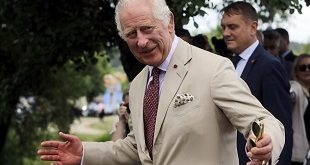– ‘Choice for confrontation’ –
May said on Monday that it was “highly likely” that Russia was behind the attack, which left Skripal and his daughter in a critical condition and a policeman also in hospital.
She said Moscow could be directly responsible or may have “lost control” of the nerve agent, and gave it until midnight Tuesday to disclose details of the Novichok programme to the international Organisation for the Prohibition of Chemical Weapons (OPCW).
On Wednesday, she said Russia had responded with “sarcasm, contempt and defiance”.
Moscow has said it is willing to cooperate but has accused Britain of failing to follow its own obligations for the investigation under OPCW rules, complaining that its request for samples of the nerve agent have been rejected.
May said it was “tragic that President (Vladimir) Putin has chosen to act in this way”, but Moscow blamed Britain for the deterioration of bilateral ties.
“The British government made a choice for confrontation with Russia,” the foreign ministry said, accusing London of pursuing a political agenda.
– Allied support –
May has spoken to US President Donald Trump, French President Emmanuel Macron and German Chancellor Angela Merkel in recent days to rally international support.
In a phone call late Tuesday, Trump and May “agreed on the need for consequences for those who use these heinous weapons in flagrant violation of international norms”, the White House said.
In a joint statement by its 29 member states, the US-led NATO alliance said the attack was a “clear breach of international norms and agreements” and called on Russia to fully disclose details of the Novichok programme.
EU Council President Donald Tusk offered his “full solidarity” and indicated the issue would be on the agenda of next week’s summit in Brussels.
British experts say Skripal, 66, and his 33-year-old daughter were poisoned with a nerve agent from a broad category known as Novichok, which was developed by the Soviet Union during the late stages of the Cold War.
The Russian chemist who first revealed the existence of Novichok, Vil Mirzayanov, said “only the Russians” developed the Novichok agents.
The case has drawn parallels with the 2006 death by radiation poisoning of former Russian agent and Kremlin critic Alexander Litvinenko, which Britain blamed on Moscow.
British police are now revisiting a number of unexplained deaths that raised suspicions of Russian involvement.
 The Independent Uganda: You get the Truth we Pay the Price
The Independent Uganda: You get the Truth we Pay the Price


